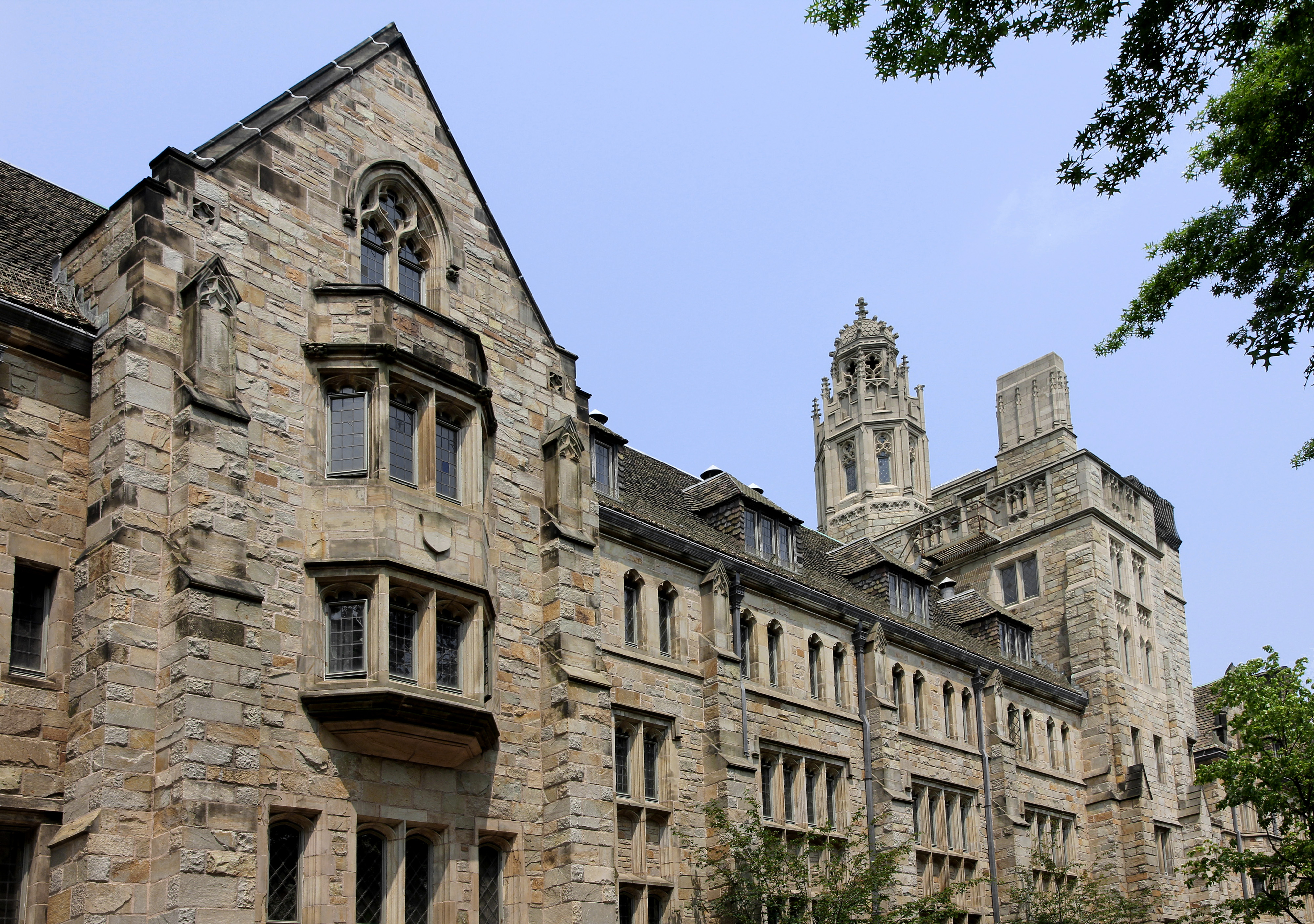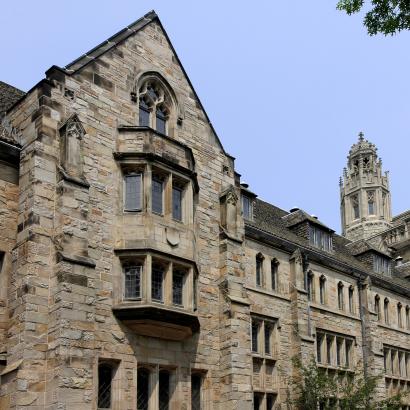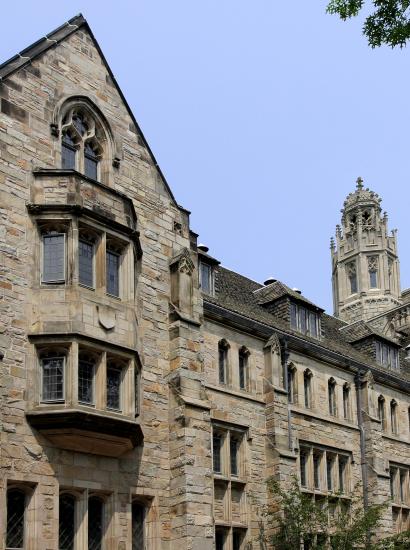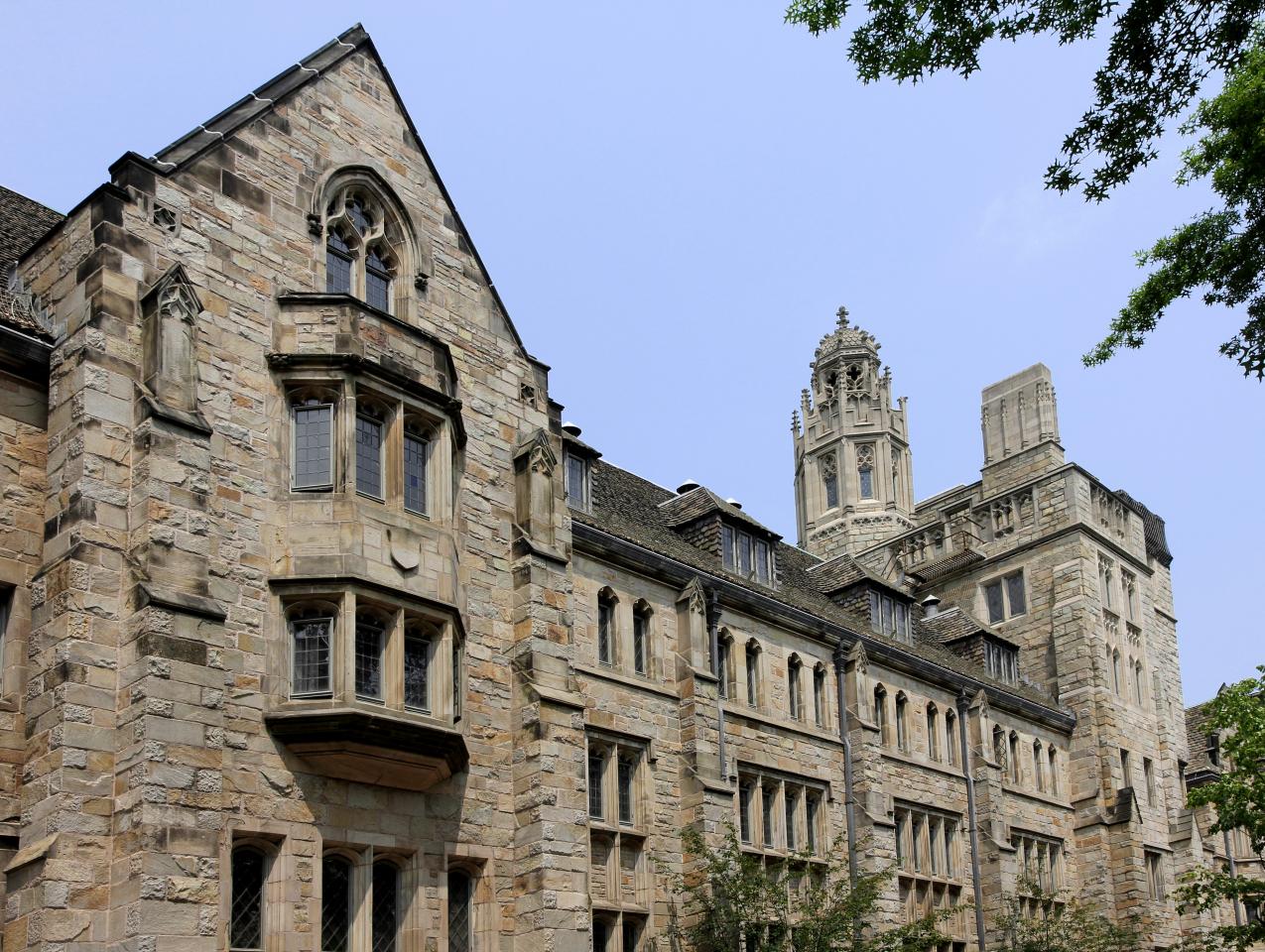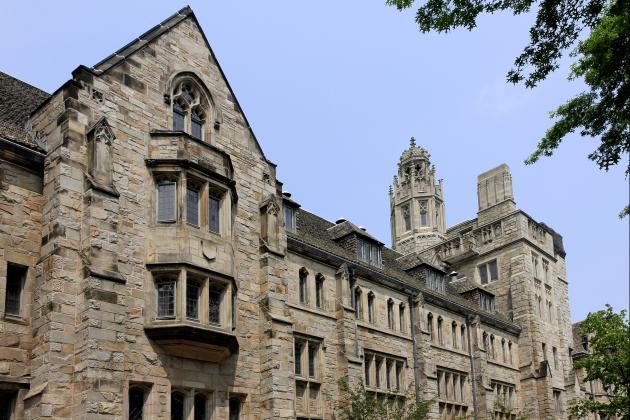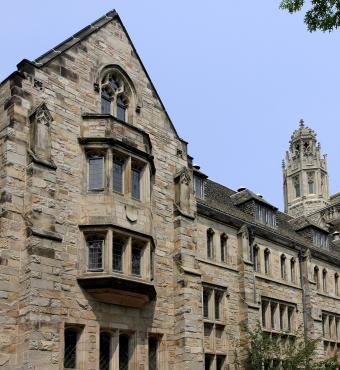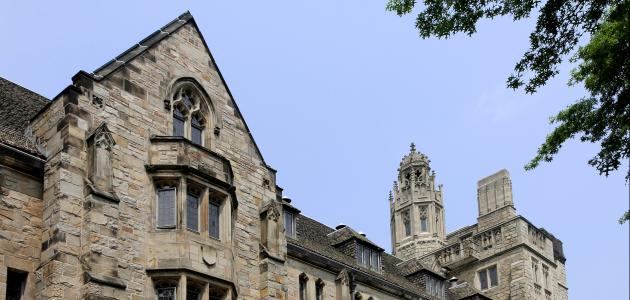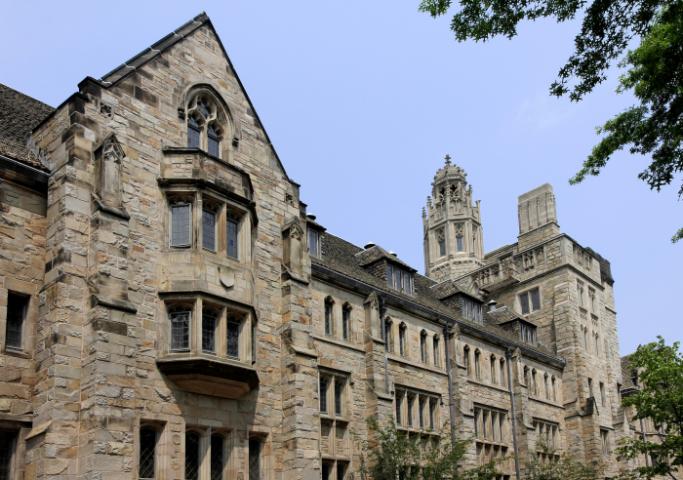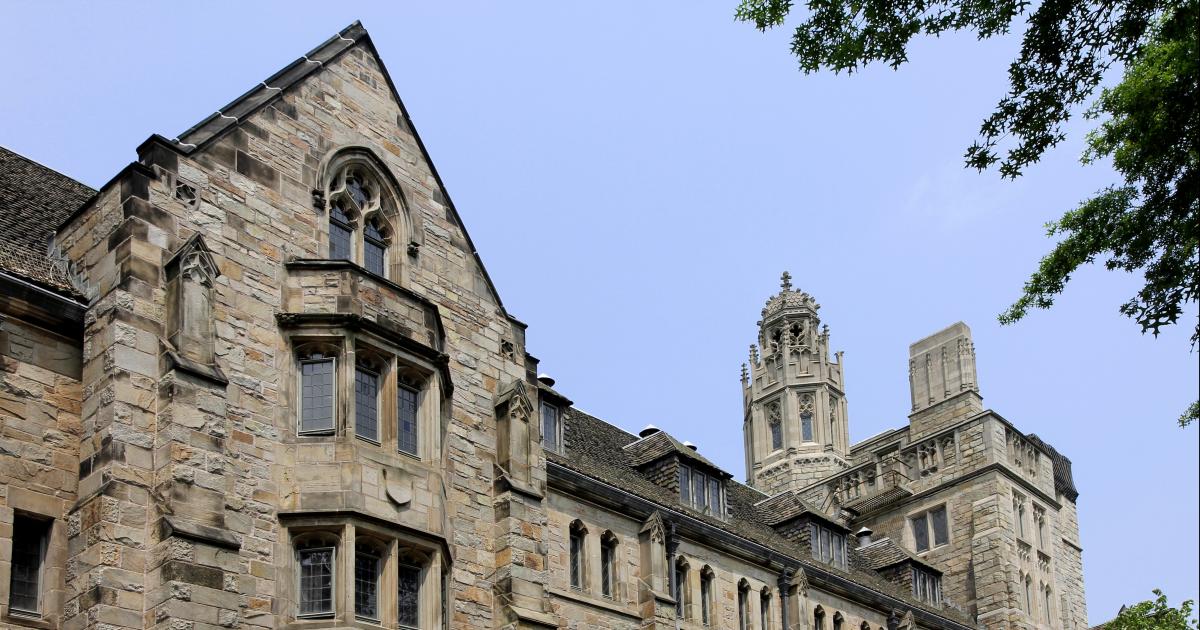- Education
In his recent op-ed in the Wall Street Journal, Yale President Peter Salovey tried to explain how colleges can make room for both freedom of speech and a culture of inclusion and diversity. Salovey wants to have his cake and eat it, too. The supposed tension between free speech and inclusion is false, he argues, because it is possible to pursue both ends simultaneously. Several days later, Yale was again in the news for its sexual harassment tribunals. As Jennifer Braceras explains in her op-ed for the Wall Street Journal, “College Sex Meets the Star Chamber,” Yale’s current policy on sexual harassment has led to a massive expansion of Yale’s control over the life of its faculty, students, and staff. At first, look, Salovey’s defense of free speech and inclusion seems unrelated to Braceras’s argument about the reach of Yale’s sexual harassment directive. But they are part of the same problem.
Yale defines sexual harassment very broadly: “Sexual harassment consists of nonconsensual sexual advances, requests for sexual favors, or other verbal or physical conduct of a sexual nature on or off campus, which includes (3) such conduct [that] has the purpose or effect of unreasonably interfering with an individual’s work or academic performance or creating an intimidating or hostile academic or work environment.” To be sure, no one wishes to defend assaultive or abusive sexual misconduct. But the Yale definition is capable of a broader reading. Combine the italicized words in the basic definition with clause (3) and the threat that this definition poses to free speech becomes clear. The phrase “purpose or effect” reaches actions that some reasonable person thinks might have an adverse effect, even if no harm was intended by it. Nor is there any effort to limit what is meant by a “hostile academic or work environment,” or activities on and off campus. It is all too likely that eager Yale bureaucrats will read these provisions broadly in order to expand the scope of their own authority.
The situation is still more dangerous because of the highly dubious procedures that are used in these cases. The tribunals use the lower “preponderance” of the evidence standard for guilt, rather than the stricter “clear and convincing” standard, which means the accuser has to bring less evidence against the accused. On top of that, the accused is denied the central right of cross-examination, even though he will face dire sanctions if convicted. It is impossible to know from the articulation of these standards exactly how any particular case will play out, or whether the Yale system will guarantee some modicum of consistency across separate cases. But what is perfectly clear is that the diehards who are likely to implement this policy are the same folks who have taken the lead in implementing Yale’s policy on inclusion and free speech, in ways that necessarily sacrifice the latter to the former.
The point here is not one of idle speculation. As Braceras notes, the administrative process against the accused does not need to be launched by an actual complaint by an individual victim; instead, independent parties, including Yale’s Title IX coordinators, are entitled to initiate and prosecute these cases. Given their own strong precommitments, this mixing of functions necessarily builds in an institutional bias against any claim that given speech acts should be protected. As a general matter, a broad definition of relevance is used in cases of this sort, so that it is possible for self-appointed inquisitors to roam far and wide to build up a case against unpopular professors or administrators, especially since the Yale procedures include no statute of limitations. The combination of loose definitions and dubious procedures is poisonous to the protection of free speech. Yet the tension goes unresolved.
It is equally instructive to realize that one does not have to introduce formal procedures in order to pose a grave threat to free speech on campus. Salovey takes great pride in noting “the Yale administration did not criticize, discipline, or dismiss a single member of its faculty, staff, or student body for expressing an opinion.” That sentence may be technically true, but it does not explain why Salovey did not mention the unfortunate fate of Nicholas and Erika Christakis, both of whom resigned from Yale under massive pressure after student protestors demanded that Nicholas be removed from his position as master of Silliman College. Why? Because Erika had written an email that took issue with a letter from Yale’s Intercultural Affairs Committee that warned students against various insensitive forms of behaviors, like wearing offensive Halloween costumes. The letter noted, like Salovey’s op-ed, that Yale values “free expression as well as inclusivity.” But the massive level of abuse directed at Nicholas and Erika Christakis reveals how strongly Yale weighs one imperative over the other.
The errors here are not just unfortunate glitches, but systematic blunders. One of the most critical matters in dealing with the right to free speech is the correlative duty that all individuals have to avoid actions that harm another person. But the harm principle contains much built-in ambiguity. It can only be clarified within a complete theory of freedom of speech, which itself must rest upon a comprehensive theory of freedom of human action. At the very least, any speech that involves the threat of force or the use of fraud should be subject to sanction under this principle, given the risk to the autonomy of others. That is why both assault and defamation have long been actionable harms. But by the same token, the harm principle can never be extended to cover cases where one person takes offense at the speech or conduct of other individuals—which is why flag-burning, however distasteful to most people, nonetheless receives constitutional protection. That extension of the harm principle, if applied uniformly to all speech acts, means that anyone who takes offense gets the right to sanction, if not veto, the speech of others, at which point no one can speak at all.
To forestall this risk, the great principle of toleration requires suspending the use of formal sanctions against disagreeable speech. Failure to follow this principle introduces the most dangerous set of incentives, by allowing any person to magnify his own indignation and outrage as a means to assert greater control over the speech of others. The danger of this position is apparent. The broader definition that equates harm with offense can only work if it is selectively applied. Thus protected groups get to complain loudly about the microaggressions against them, but they, in turn, are entitled to venomously attack those with whom they disagree. A culture of free speech and open inquiry cannot long survive using this broad and selective definition of harm.
Yale, of course, is a private university that is not bound by the First Amendment, and hence could adopt whatever warped political and intellectual environment that it wants. But what Salovey cannot do is claim that Yale respects the principle of free speech, especially after the resignation of the Christakises following the relentless personal attacks on them as a result of Erika’s thoughtful email. What Salovey should have done was spoken forcefully and publicly in their defense, and entreated them to stay. Nor should he have stopped there. It was incumbent on him to endorse explicitly and publicly the commitment to free speech that President Robert Zimmer announced for the University of Chicago not too long ago. Zimmer made it crystal clear that he expects Chicago students to develop a certain toughness of mind in academic settings that transcends today’s vogue of “trigger warnings” and “safe spaces.” In order to learn and grow, students must encounter views averse to their own.
Yet Yale does not take that evenhanded and content-neutral position to preserve free speech on campus. Instead, it acts as an institutional arbiter that offers some groups special protection and leaves others to fend for themselves. It is quite chilling to read the Yale website, which heralds the university’s new commitment to the principles of diversity and inclusion across all aspects of Yale life: recruitment, mentoring, communications, and the like. One component of that program is a commitment to spend $50 million to make diversity hires on the faculty. Other initiatives are intended to create new centers and programs to study diversity throughout the university.
The Yale website proudly proclaims: “A diverse workforce and inclusive environment increases productivity, creates new ideas, performs on a higher level, and enhances Yale’s ability to continue to excel in an increasingly complex, competitive and diverse world.” Apparently, the principles of diminishing marginal returns do not apply to diversity. At no point does Yale even hint at the opportunity costs that are incurred by this uncritical adoption of its diversity agenda. Which programs were cut to make room for these new initiatives? And why?
Another obvious problem is that Yale does not celebrate political and intellectual forms of diversity, even though the overall leftward movement of university faculties has intensified in recent years. If Yale truly cared about diversity, it would look to increase the number of conservative-minded and pro-market academics in its hires of new faculty, while backing off hiring faculty members who have strong sympathies with groups like Black Lives Matter or the anti-Israel BDS (boycott, divest and sanctions), which represents the very antithesis of inclusion. But there is no indication that right-of-center thinkers are welcome under Yale’s tent.
Yale’s new inclusion and diversity policies will have grave consequences for the future of freedom of speech on campus. They will further reduce the likelihood that the institution will either announce or enforce content-neutral policies. The direct effect will be Yale’s continued discrimination against, or exclusion of, people whose views are found to not fit within its faux-inclusive community. Yale’s diversity-focused policies of recruitment, promotion, and retention will continue to drive the university further to the left now that no one in the administration is prepared to defend the traditional values of academic excellence and freedom of speech against the demands of diversity and inclusion. As a Yale Law School alumnus, I fear Peter Salovey’s misguided agenda will cause Yale to descend into moral dogmatism and intellectual mediocrity.
Editor's note: To read Yale University's response to this essay, which Defining Ideas published on October 31, 2016, please click here.







